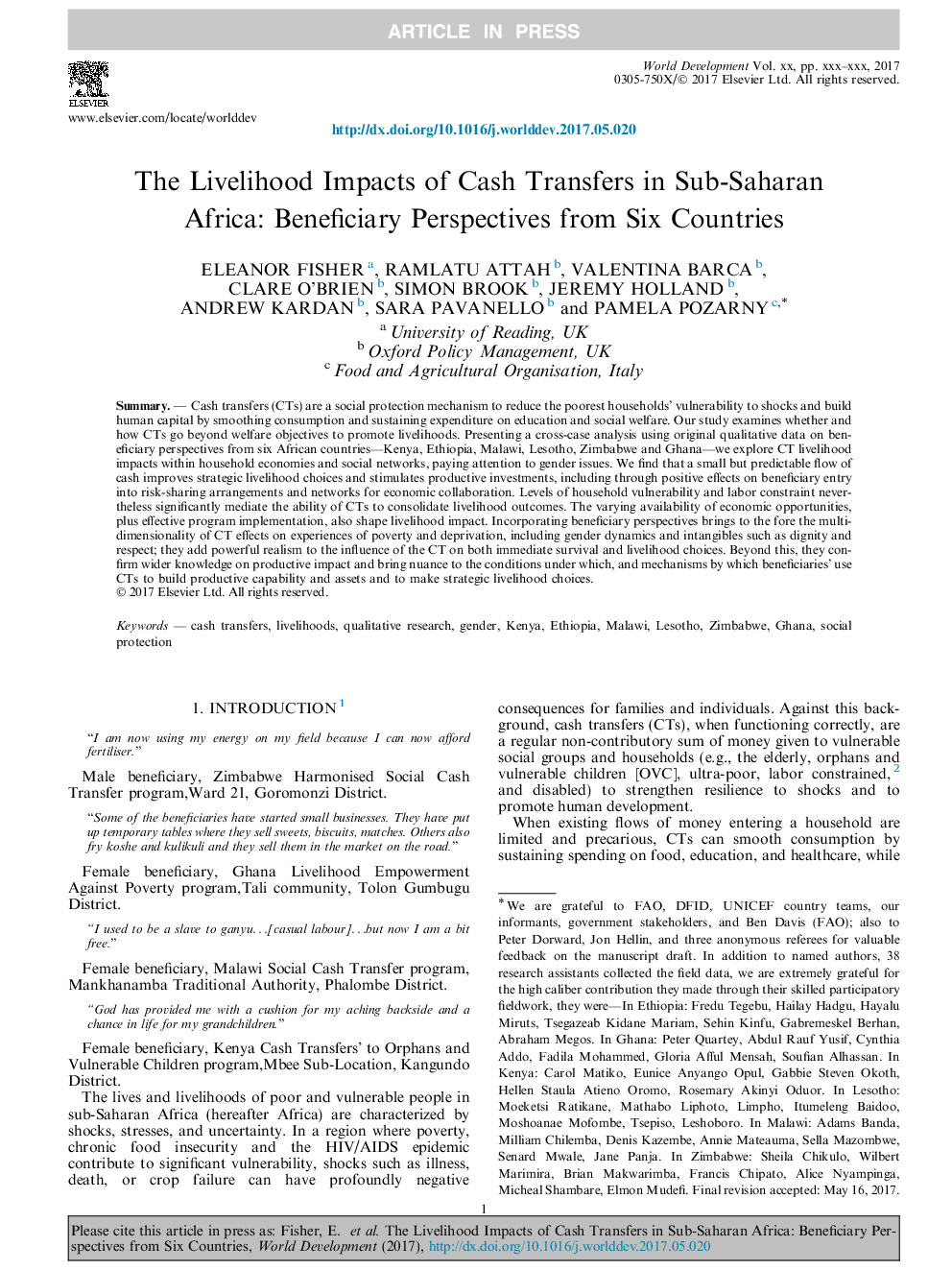ترجمه فارسی عنوان مقاله
تأثیر معیشت انتقال پول نقد در کشورهای جنوب صحرای آفریقا: دیدگاههای سودمند از شش کشور
عنوان انگلیسی
The Livelihood Impacts of Cash Transfers in Sub-Saharan Africa: Beneficiary Perspectives from Six Countries
| کد مقاله | سال انتشار | تعداد صفحات مقاله انگلیسی |
|---|---|---|
| 131784 | 2017 | 21 صفحه PDF |
منبع

Publisher : Elsevier - Science Direct (الزویر - ساینس دایرکت)
Journal : World Development, Volume 99, November 2017, Pages 299-319
ترجمه کلمات کلیدی
انتقال پول نقد، معیشت، تحقیق کیفی، جنسیت، کنیا، اتیوپی، مالاوی، لسوتو، زیمبابوه، غنا، حمایت اجتماعی
کلمات کلیدی انگلیسی
cash transfers; livelihoods; qualitative research; gender; Kenya, Ethiopia, Malawi, Lesotho, Zimbabwe, Ghana; social protection;

